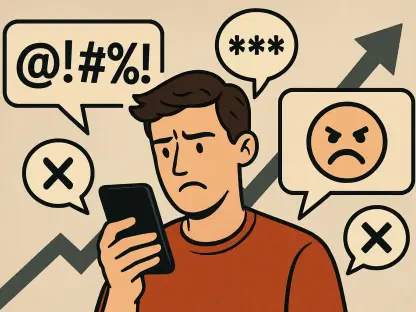In a digital age where celebrity endorsements can make or break a product, a recent controversy has erupted involving several high-profile ESPN personalities and their promotion of a mobile gaming app called Solitaire Cash. Developed by Papaya Gaming, an Israel-based company, the app has been marketed as a skill-based platform where players can engage in free games or wager real money in head-to-head matches. However, allegations of deceptive practices, including the use of computer bots to manipulate outcomes, have sparked significant public and legal scrutiny. The involvement of trusted figures from a major sports media network has only intensified the debate, raising critical questions about accountability and the ethics of endorsing potentially problematic products in the fast-evolving mobile gaming industry. This situation has captured widespread attention, as it highlights the intersection of celebrity influence, consumer trust, and the murky waters of digital entertainment.
Ethical Dilemmas in Celebrity Endorsements
Trust Under Fire
The core of the controversy surrounding Solitaire Cash lies in the ethical implications of celebrity endorsements when the product in question faces serious allegations. ESPN personalities such as Stephen A. Smith, who was recently named the official ambassador for the app and its inaugural World Solitaire Championship set for Miami in February 2026, have come under fire for promoting a platform accused of unfair practices. Critics argue that these public figures, whose opinions often shape audience perceptions, bear a responsibility to thoroughly vet the products they endorse. The accusations against Papaya Gaming, including the use of bots to mimic human opponents in real-money contests, have led to class-action lawsuits and widespread skepticism. This situation underscores a broader concern: when trusted voices lend their credibility to disputed apps, they risk eroding the trust of their followers, especially in an era where digital transparency is increasingly demanded by consumers.
Varied Responses from Personalities
Adding another layer to the ethical debate is the diversity of responses from the ESPN figures involved in the Solitaire Cash promotion. Mina Kimes, a respected analyst, publicly apologized on social media to her vast audience, admitting a failure to research the app before endorsing it and expressing deep regret over the oversight. Her candid admission, which garnered millions of views, contrasts sharply with the actions of Kendrick Perkins, who has continued to promote the app by encouraging fans to challenge Stephen A. Smith in matches. Meanwhile, Dan Orlovsky quietly removed his promotional content without issuing a public statement, reflecting a more reserved approach. These differing reactions highlight the complex nature of accountability in the public eye. While some choose transparency and contrition, others maintain their stance or avoid addressing the criticism altogether, leaving fans and critics to question the sincerity and responsibility behind such endorsements.
Industry-Wide Challenges in Mobile Gaming
Allegations of Deceptive Practices
Beyond the individual actions of ESPN personalities, the Solitaire Cash controversy sheds light on deeper systemic issues within the mobile skill gaming industry. Papaya Gaming, alongside competitors like AviaGames, faces persistent accusations of manipulating gameplay through the use of bots, creating an illusion of fair competition while allegedly stacking the odds against players. Legal battles further complicate the landscape, with a notable $43 million judgment awarded to Skillz against AviaGames last year for patent infringement related to peer-to-peer matching technology. Papaya Gaming has countered with lawsuits of its own, alleging defamation by competitors. Despite claims from a company spokesperson that bots have not been used since late 2023, ongoing class-action lawsuits continue to challenge the integrity of their operations. This pervasive distrust in the industry raises significant concerns about consumer protection in digital platforms that blur the line between entertainment and gambling.
Broader Implications for Consumer Trust
The fallout from the Solitaire Cash endorsements extends beyond legal disputes, pointing to a growing public skepticism toward mobile gaming apps promising skill-based competition for real money. The involvement of high-profile figures amplifies the stakes, as their endorsements can influence thousands, if not millions, of users to engage with potentially problematic platforms. Critics argue that these apps often prioritize profit over fairness, exploiting players through deceptive practices that undermine the very concept of skill-based gaming. This controversy serves as a cautionary tale for the industry, highlighting the need for stricter regulations and greater transparency to rebuild consumer confidence. As lawsuits and public backlash continue to mount, the mobile gaming sector faces a critical juncture where ethical standards must be reevaluated to ensure that players are not misled by the promise of easy winnings in a digital arena that may not be as fair as advertised.
Reflecting on Accountability and Future Steps
Lessons Learned from Public Missteps
Looking back, the involvement of ESPN personalities in the Solitaire Cash controversy revealed significant lapses in judgment that sparked a broader conversation about the responsibilities of public figures. The varied responses, from heartfelt apologies to continued promotion, painted a picture of inconsistency in addressing public criticism. These missteps served as a stark reminder that influence comes with a duty to prioritize consumer trust over commercial gain. The intense scrutiny faced by these individuals underscored how quickly reputational damage could occur when endorsements were tied to products under legal and ethical fire. Reflecting on this episode, it became evident that thorough due diligence was not just advisable but essential for maintaining credibility in the eyes of an increasingly discerning audience.
Charting a Path Forward
Moving beyond the immediate fallout, the Solitaire Cash saga pointed to actionable steps for both celebrities and the mobile gaming industry to prevent similar controversies. Public figures should establish rigorous vetting processes before lending their names to products, ensuring alignment with ethical standards. For the industry, adopting transparent practices and embracing independent audits could help restore faith in skill-based gaming platforms. Regulatory bodies might also consider implementing stricter guidelines to protect consumers from deceptive practices. As legal battles and public discourse evolve, fostering an environment of accountability will be crucial. This situation offered a chance to redefine trust in digital entertainment, urging all stakeholders to prioritize fairness and integrity in an era where technology and influence are deeply intertwined.









